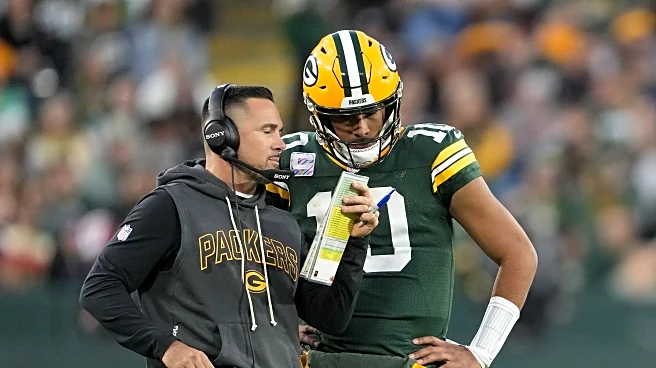What's Happening?
OpenAI, led by CEO Sam Altman, announced plans to allow explicit content on its ChatGPT platform for verified adult users. This move aims to make the chatbot behave in a more 'human-like' manner. The decision follows a history of safety concerns, including
a lawsuit from parents whose son used ChatGPT to explore harmful content. Experts express concerns that OpenAI prioritizes engagement and profit over user safety. The company plans to implement age verification, but there are worries that teens might bypass these restrictions.
Why It's Important?
The introduction of explicit content on ChatGPT raises significant ethical and safety concerns. While it may enhance user engagement, it also poses risks, particularly for younger users who might access inappropriate content. This development highlights the ongoing tension between technological advancement and user safety. It underscores the need for robust age verification systems and parental guidance to mitigate potential harm. The move could influence public perception of AI safety and impact OpenAI's reputation and user trust.
What's Next?
OpenAI's decision may prompt other tech companies to reconsider their content policies. Parents and educators might increase efforts to monitor and guide children's online activities. Regulatory bodies could also scrutinize AI platforms more closely, potentially leading to stricter regulations on content accessibility. The tech industry will likely observe how OpenAI manages the balance between innovation and safety, which could set precedents for future AI developments.

















